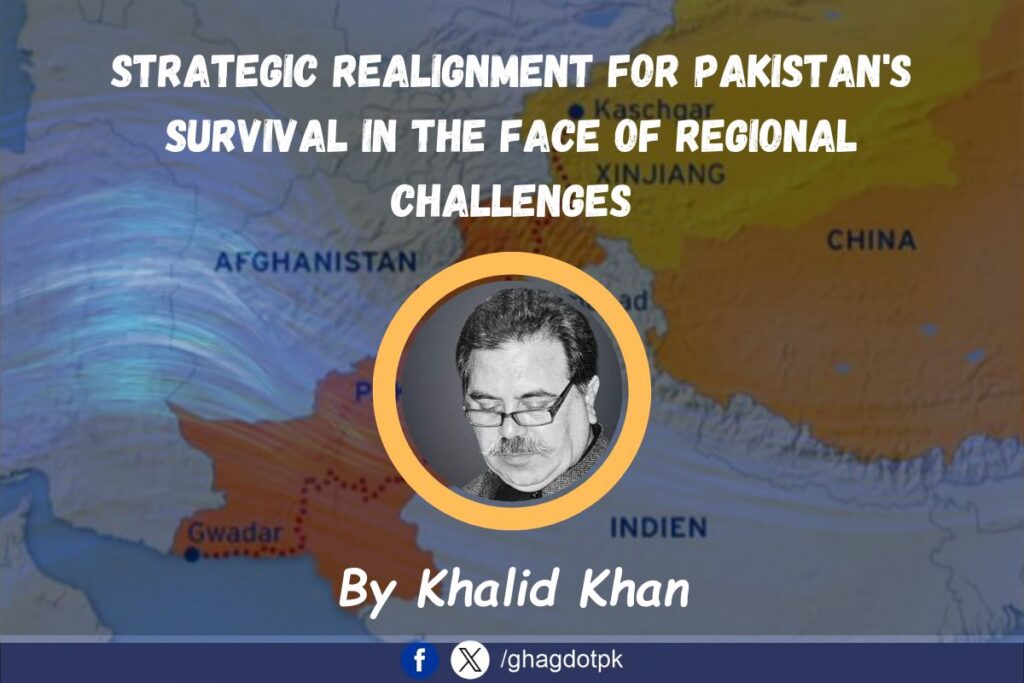By Khalid Khan
Historical Context and Geopolitical Dynamics
For centuries, Afghanistan has served as a gateway for invasions into the Indian subcontinent. Recognizing this, the British devised a three-layered defense system stretching from the Amu Darya to the Indus River, positioning Afghanistan as a buffer state, the tribal belt as a semi-autonomous zone, and the Indus as a natural barrier fortified by military installations like the Attock Fort.
Despite their capacity, the British deliberately left the tribal areas underdeveloped, using them as a reservoir for military recruitment. Post-independence, Pakistan perpetuated this neglect, failing to uplift the socio-economic conditions of these regions.
The Role of Tribal Areas in Regional Conflicts
During the Soviet invasion of Afghanistan, Pakistan’s tribal areas became the epicenter of the anti-Soviet jihad, with tribes like the Mehsuds and Wazirs playing key roles. The subsequent migration of millions of Afghans into Pakistan deepened socio-cultural ties but also imported extremist ideologies, turning these regions into hubs of militancy.
Post-9/11, these areas became a frontline in the global War on Terror, witnessing cycles of violence and extremism that remain unresolved despite integration into Khyber Pakhtunkhwa.
Policy Missteps and Their Fallout
Pakistan’s policy of supporting the Afghan Taliban while neglecting the development of tribal areas has created domestic and regional challenges, including:
Economic instability
Political turmoil
Governance failures
Rising separatist movements
Erosion of public trust in institutions
Persistent terrorism and geopolitical rivalries
Movements like the Pashtun Tahafuz Movement (PTM) highlight the discontent brewing in these neglected regions.
Strategic Recommendations
To address these crises, the following steps are proposed:
1. National Unity Government: Form a five-year transitional government with credible local representatives.
2. Governance Reforms: Shift from traditional politics to a revolutionary, efficiency-driven model.
3. Technocratic Leadership: Assign expert committees to lead ministries under military and judicial supervision.
4. Institutional Overhaul: Modernize key sectors through structural reforms.
5. Economic Discipline: Reduce expenditures and enhance revenues.
6. National Projects: Prioritize development initiatives with long-term benefits.
7. Youth Engagement: Inspire and depoliticize the youth for nation-building.
8. Foster Patriotism: Strengthen unity through nationalism.
9. Diplomatic Strategy: Balance diplomacy and military engagement with Afghanistan.
10. Security Oversight: Establish a high-level military-led committee for security challenges.
11. Meritocracy: Ensure all appointments are based on merit.
12. Engage Critics: Constructively address intellectual dissent.
13. Modernize Policies: Replace outdated practices with innovative approaches.
14. Tolerance for Opposition: Manage dissent with patience and dialogue.
15. Civil Service Reforms: Align bureaucracy with global standards.
16. Eradicate Corruption: Strengthen anti-corruption mechanisms.
17. Rule of Law: Enforce laws impartially to ensure accountability.
18. Foreign Policy Autonomy: Keep foreign policy within state institutions.
19. Clear Objectives: Set defined short -, medium -, and long-term national goals.
20. National Priorities: Place Pakistan’s welfare at the center of all decisions.
21. Culture of Sacrifice: Foster a collective readiness for sacrifices to achieve progress.
Conclusion
These measures, if implemented sincerely, can guide Pakistan toward stability and prosperity. The time for decisive action is now to secure a better future for generations to come.
About the Author
Khalid Khan is a journalist, poet, author, writer, and political analyst from Peshawar, Pakistan. He is an expert on Pakhtunkhwa, Balochistan, and Afghanistan, with extensive experience in national and global media. Currently, Khalid Khan serves as the editor of the English section at Ghag, a reliable media platform accessible at ghag.pk. He advocates for pragmatic reforms and insightful policymaking to address Pakistan’s pressing challenges.






